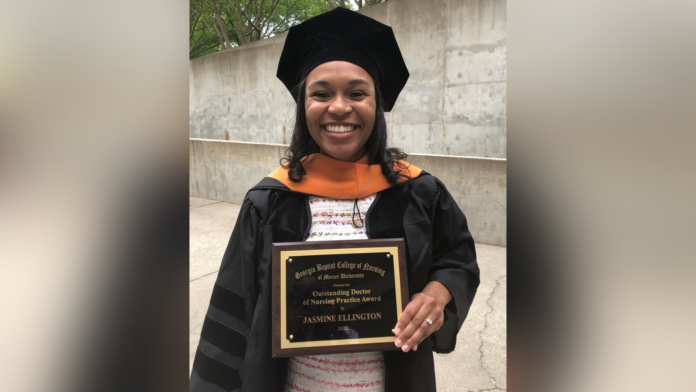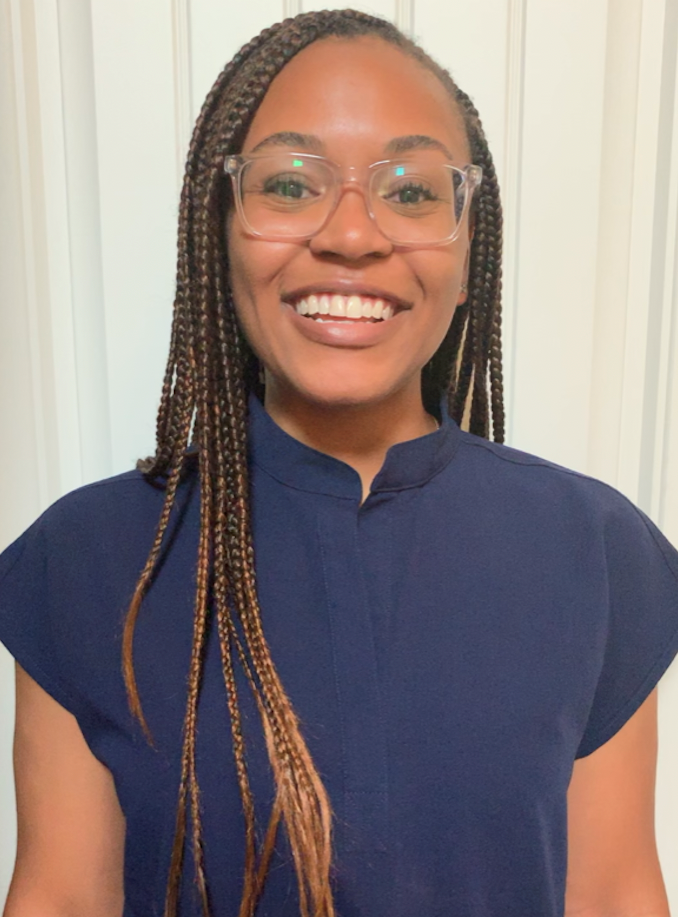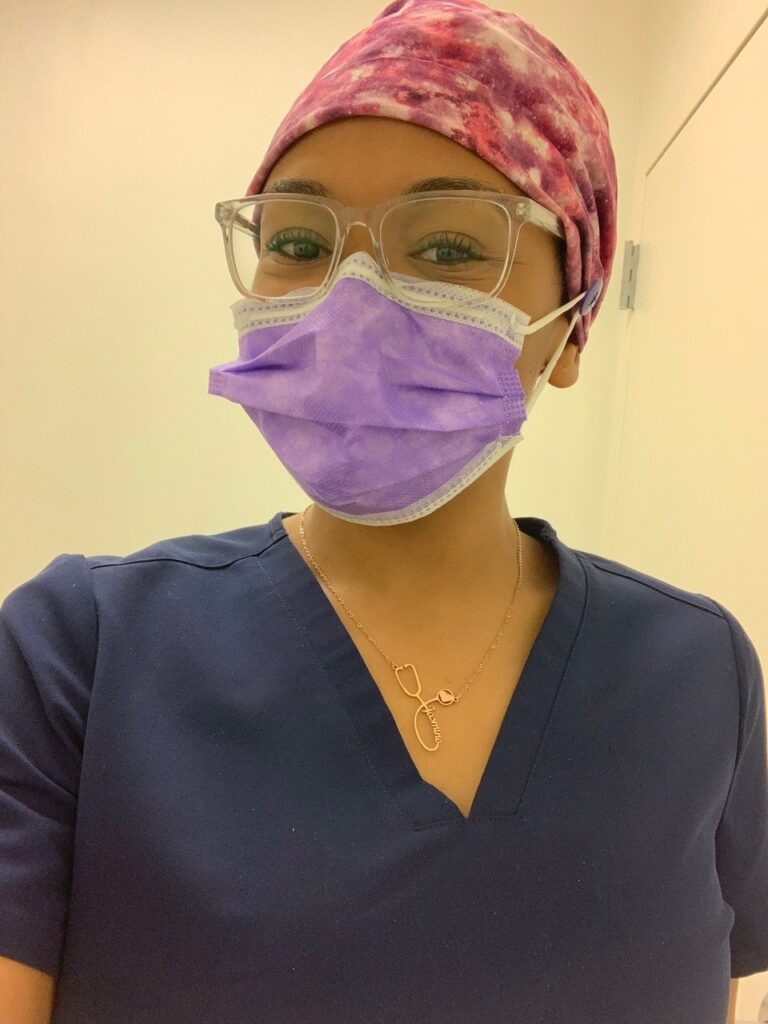
An endowed scholarship spearheaded by a Mercer University alumna is nearing the fundraising goal that will make it a reality. The Diversity in Nursing Scholarship for Mercer’s College of Nursing was initiated three years ago by Jasmine Garrett Ellington, who wants to help increase racial and ethnic diversity in nursing schools and the nursing profession.
Ellington is a Triple Bear who completed her Bachelor of Science in Nursing in 2019 and her Master of Science in Nursing and Doctor of Nursing Practice during the 2022-23 year. She is a cardiovascular clinical nurse for Wellstar Health System in Atlanta.
As a nursing student in 2020, she was moved to create the scholarship after the shooting death of 26-year-old Breonna Taylor, a Black woman who was fatally shot by police officers during a raid of her Louisville, Kentucky, apartment.
Ellington worked as an emergency medical technician (EMT) while she was an undergraduate nursing student and an emergency department nurse during graduate school and said she felt connected to Taylor, an EMT who aspired to become a registered nurse. The scholarship was a way for Ellington to give back and create something positive.
Endowed scholarships require a minimum of $25,000 to be raised over a five-year period before the first awards can be presented, and Ellington donated the first $1,000 herself. After University fundraising campaigns and contributions by faculty, staff, alumni and the community over the past three years, the scholarship is now roughly $5,000 away from its goal. Another crowdfunding campaign for the scholarship launched on Oct. 23.
“We’re almost at our goal to become an endowed scholarship at Mercer, to be with Mercer forever and ever,” Ellington said. “That’s pretty exciting. This has been all thanks to the community, largely, and a lot of people believing in the importance of diversity in nursing.”


The College of Nursing hopes to be able to award the first scholarship for the 2024-25 academic year, Dean Dr. Tammy Barbe said. Per the scholarship criteria, the recipients chosen will be pre-licensure nursing students from disadvantaged backgrounds, including racial and ethnic minorities, with priority given to African American students.
“I have pretty high hopes that it will make a pretty big difference,” Ellington said. “Thank you to everybody who has already given and been standing behind this mission and vision since 2020 when it all started. Awarding the first scholarship will be really cool to see because it will have been a community effort.”
The Diversity in Nursing Scholarship aligns with Ellington’s interest in evidence-based practice and policy work related to health equity. She hopes it will inspire other colleges to launch their own projects that focus on diversity and support minority students in their nursing programs.
“We’re trying to get more of a conversation started by not only raising funds for the scholarship but also talking about why diversity in nursing is important to the community,” she said. “Talking about ‘the why’ helps to connect the community. Offering this to nursing students would be pivotal in creating more future nurses, nurse educators, nurse researchers, advanced practice nurses, and just a more diverse field of nurses in all aspects. Increasing diversity in nursing impacts everybody and will help lead to a healthier and more equitable society. ”
Ellington hopes that creating this scholarship fund and starting this conversation will help people begin to realize the importance and power in diversity.
Dr. Barbe said she is grateful for Ellington’s leadership as a nursing student and an alumna. The College of Nursing is always looking for ways to increase the diversity of students and promote their success and retention. Ellington’s scholarship supports that mission.
“As a college, we believe that a diverse campus environment leads to enhanced teaching and learning, workforce preparedness and social responsibility,” Dr. Barbe said. “We recognize that a diverse nursing workforce leads to better outcomes for patients. Literature supports that increasing diversity in the health care workforce will help to reduce health care disparities and is essential to achieving health care equity.
“(This scholarship) will reduce some financial hardship that these students experience, so they can achieve their dreams of becoming nurses.”










